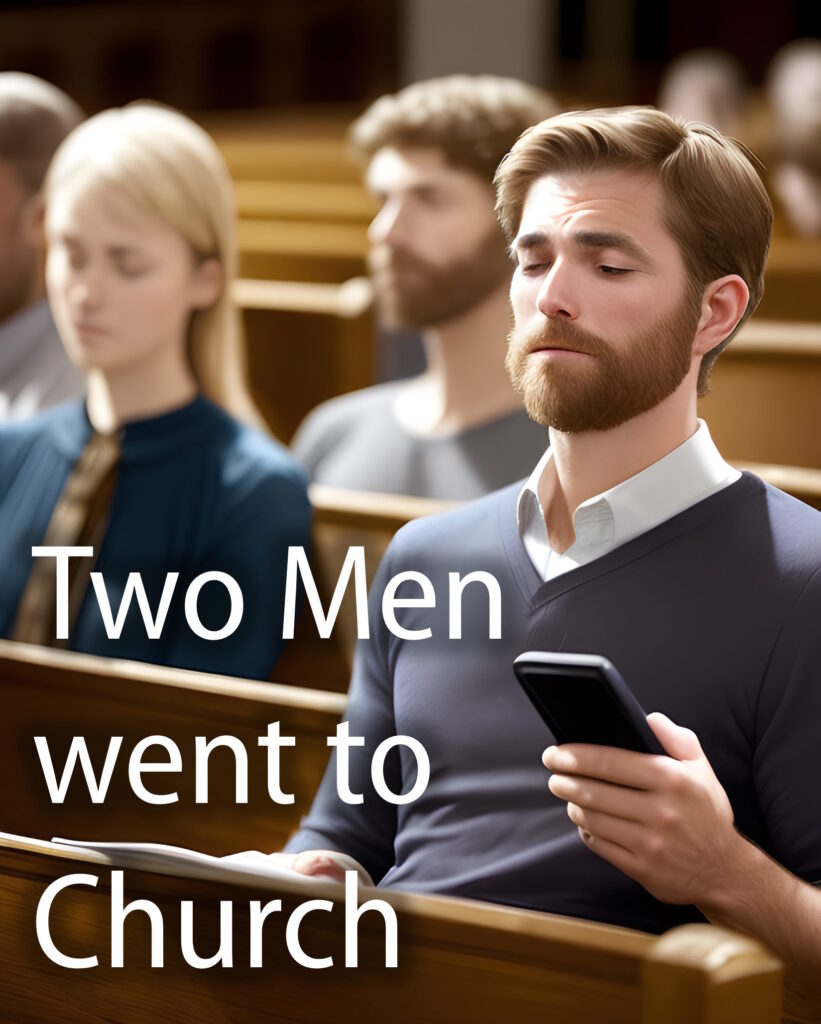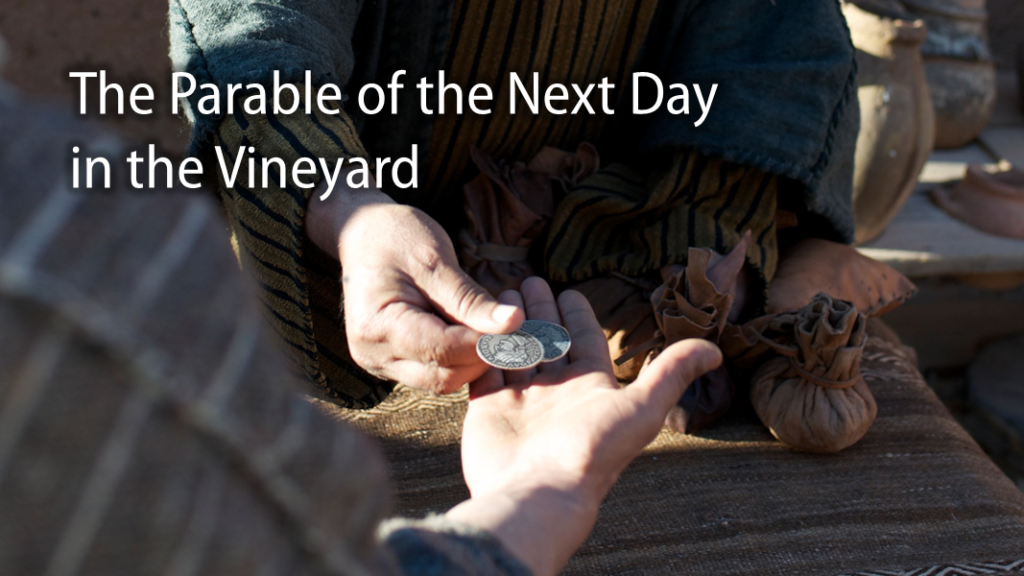Hespeler, October 29, 2023 © Scott McAndless – Anniversary Sunday
Deuteronomy 34:1-12, Psalm 90:1-6, 13-17, Acts 12:1-17, Matthew 22:34-46
It was Sunday, a very important Sunday, and the church had gathered together to celebrate and to just enjoy one another’s company. But they had also come at a moment when they were feeling a great deal of anxiety for the future.
An Anxious Meeting
There were a few things that caused this anxiety. The church had once enjoyed many privileges in society. When it had met on Sunday mornings, for example, the society had once cancelled almost all other activities, giving people nothing better to do than to attend church. In addition, the society had often deferred to church leaders and largely adopted the church’s moral teachings as its own.
But many of these special advantages were no longer extended to the church these days and the loss of them, while it was not exactly a classic case of persecution, certainly felt like it to many of them. And it made them worry and fret for the future.
Leadership and Money
Another anxiety was leadership. Perhaps it was a sign of difficult times and people were just too preoccupied with paying the bills and getting by, but people just weren’t stepping forward and offering leadership and support to the church like they once did.
And then, of course, there was the other perennial worry: money. They almost hated to admit it, but it was true that the good work of the church required money to be carried out and, again, because so many seemed to struggle with the bills these days, it did not always appear when they thought it should. That also created anxiety.
A Prayer About Our Place in Society
And so, one of the members stood and began to beseech the Lord. “O Lord, we pray for the church and its many challenges. We recognize that society has turned against us, that they are trying to cancel us and that nobody even wants to play with us any…” <Loud knocking. Pause>
“As I was saying, Lord, no one even seems interested in coming into the church anymore and they have all decided that we are totally irrelevant when it comes to having anything worthwhile to say about the world’s problems. But it is they who have decided to make us irrelevant by excluding us from the conversation – by telling us that we can’t just have the conversation on our terms anymore. O Lord, why don’t you hear us when we call…” <Loud knocking. Pause>
“O my God… God, it is so hard to pray properly with all these interruptions! You see how hard it us, O Lord. Why don’t you help us?”
A Prayer for Workers
The elder sat down but, since all the church’s anxieties had hardly been expressed, another quickly stood and began to pray. “O Lord,” she said, “it is sadly true that no one wants to do the work of the church these days. They are all too busy doing other things and playing sports on Sundays. You know, there was a time… <Loud knocking. Pause> … I say there was a time when people were only too happy to volunteer their time to the church. If only you would send us people, maybe people with young families, who would be able to step forward and volunteer to do the work of the church. That would be so awesome O my… <Loud knocking.>
Rhoda
“Rhoda, Rhoda! Where are you? Can you please go out to that door and just tell whoever it is who won’t stop knocking that we are busy in here holding our very important prayer meeting because the church is facing many crises? Tell them to leave us in peace!”

Rhoda was the church custodian. She did a lot of the cleaning and organizing around the place. As part of her job description, she was also supposed to handle matters of security and making sure that the doors were opened when they needed to be opened and locked when they needed to be locked.
But, since she was effectively the only employee of the church, they tended to look to her for all kinds of other things. She made sure that everything was set up for important prayer meetings like this one. She often answered the phones. So, yes, of course she was the one that they asked to take care of any sort of disturbance. She was the one who had to go to the door. But, meanwhile, the good people of the church continued in their prayers.
A Prayer for Money
A third respected member of the church was now standing and praying on behalf of them all. “O Lord,” he cried, “we do rather hate to bring it up, but there is the matter of paying the bills. Money, it seems, is short and is a constant struggle. If only you would see fit to provide a little boost for the old bank account, just make it so that we don’t have to constantly worry about keeping the lights on and the heat going, that would be really nice.”
At least, the prayer went something like that. But honestly, people were kind of distracted by the disturbance at the door. They couldn’t help but listen as Rhoda’s feet shuffled towards the door. And then there was this odd semi-whispered discussion that none of them could make out the content of. They could pick up on the emotions of it though, and were surprised to hear how excited Rhoda seemed to become at the muffled responses of whomever was on the other side of the door.
Rhoda’s Announcement
Just as the latest designated pray-er wound up a very sophisticated prayer request for an excellent return on all the church’s investments, he was very annoyed to be interrupted by the sound of Rhoda running back into the sanctuary. “They’re here, they’re here!” she cried. “All of the answers to all of your prayers have been standing just outside the door and knocking all this time! Do you think I should let them in?
Well, as you can imagine, the whole church immediately erupted in outrage. “What are you doing, Rhoda? Foolish girl, don’t you know better than to interrupt our very important prayers? We are doing the important work of the church here. Let’s have a little bit of reverence and decorum! Let’s have a little bit of respect.”
Rhoda Doubles Down
But, for some reason, all their criticisms did nothing to temper Rhoda’s excitement and she only cried out more loudly that they didn’t need to pray, and that God had already answered. It took some time for them to understand what she was saying (mostly because they really didn’t want to bother listening to her) but when they finally did understand, that only enraged them all the more.
“You silly girl,” they cried, “you must be out of your mind. What do you know about prayers and the answering of prayers? You probably just saw some angel or something, and you’re not supposed to take those literally. We are the experts on that. We’ll say what the answer to prayer is, not some custodian.
And so, Rhoda left them. What was she supposed to do? She went out and met with the one who had been knocking at the door. And I guess that the last thing I heard was that they were still praying for God to save their church.
A Metaphor for the Church
I don’t know if the author of the Book of Acts realized it at the time, but I believe that in the story of Peter and Rhoda at the door, he offered us a perfect metaphor for the way that the church has often behaved through the ages.
He did, I am sure, realize just how humorous his little story was. He had to be laughing into his sleeve as he wrote it down. The sheer irony of it! The church is praying inside for something while the literal answer to their prayers is knocking at the door outside and can’t get in. And, what’s more, they don’t want to let him in because they don’t really believe that he could be there.
It is an amusing situation, but one that is meant to shine a light on the church and make it think about how it operates. This is not a story about something that happened just once. It is a story that keeps on happening and we need to learn from it.
God Saves the Church
Throughout its history, the church has been in crisis again and again. And the church has responded by praying and imploring God for salvation. And God has always sent that salvation for the church. The proof of that is that the church is still here in existence some 2000 years later. Often the salvation of the church was knocking on the door, but the church just couldn’t recognize the salvation that was out there.
The Fall of Empire
In the fifth century, for example, the Roman Empire was crumbling in the West because of devastating barbarian invasions. And the church was so tightly integrated into the Empire at that point that it felt, not only like the end of the church but the end of the world.
They prayed desperately for God to save the church, but the salvation that God sent, that was knocking at the door, was not the one they were looking for. It was the so-called barbarians themselves who proved to be the salvation as they converted in huge numbers. It changed the church in innumerable ways, but the church also found new vitality in a new culture.
The Reformation
And that pattern has repeated again and again. When the church felt threatened by reformers in the sixteenth century, of course it prayed for God to make the threat of reform go away, but the answer that God sent was new vitality through reform, both for the existing Roman Catholic Church, which was reformed at the Council of Trent and the new Reform Churches. The answer was banging on the door, and they just didn’t want to open it.
Today
So, I can’t help but think that today, when we feel like the very survival of the church is at stake – when the forces in society seem more intent on bringing it down than ever before – we might be dealing with the same problem. Even as we pray for God to save us, we are ignoring the sound of the very answer that we are praying for as it knocks at our door.
Even more importantly, we have Rhoda’s among us, people who are aware of what is actually knocking at the door of the church out there, even as we are dismissing them, mocking them for coming to tell us who is knocking at the door.
What is Knocking?
Who may be knocking at the door today? Is it growing numbers of minorities and immigrant groups, who are looking for ways to worship God while holding onto their own cultural identity?
When Rhoda comes running back into the room shouting that God has sent many such people to be a part of the future of the church in this place, how will you respond? Will you ridicule her, tell her that she is out of her mind? And, if you do, will it be because you really believe that, or is it rather because you are not willing to accept the change that would come to the church if such people were allowed to have a voice and some power?
A New Generation
You could say much the same thing about a younger generation. Are they literally at the door of the church knocking to get in? Not very often these days. But I don’t think that is necessary because the church and the gospel have nothing to offer them. I think we have been more proactive in keeping them away in their case. The way we have treated the Rhoda’s among us – shutting down their efforts at bringing change – may have already convinced many of them that there is no place for them in the church.
Send us a Rhoda
But here is the bottom line as far as I am concerned. God cares about the church. God answers prayers – not always in the ways we want or expect, but God answers prayer. So, there is some answer to our prayer knocking at the door. God send us a Rhoda or two – someone who is not afraid to go to the door and discern who is out there. God give you the courage to become a Rhoda. Most of all, God give us all the courage and wisdom to listen to Rhoda when she speaks up!








